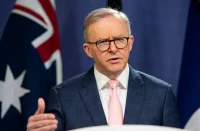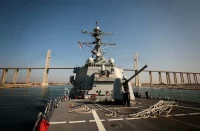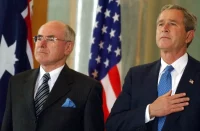(Please read the first part of this series titled “Is the Tripartite really on the verge of ‘dicing up’ Syria?” prior to this article. It deals with the finer details about Reuters’ speculative report, which the author does not believe is validated or accurate, but nonetheless deserves to be addressed. In connection with this, it’s also appropriate to offer up some realistic solutions for what Syria can do in the event that the worst-case diplomatic scenarios mentioned in the Reuters article end up unfolding.)
Syrian Solutions
The first thing that needs to be said is that the Syrian Arab Army (SAA) and the patriotic majority of the country which it represents are winning the war and that there is no natural reason why they would agree to any sort of ‘concessions’ to the “opposition” given the prevailing circumstances after the successful liberation of Aleppo. Even accounting for the need to secure newly freed territories and replenish the troops (whether physically, emotionally, and/or psychologically), there’s no logical argument for why the nationwide liberation operation can’t continue after its brief tactical respite. The only plausible explanation is that Syria’s chief international protectors, Russia and Iran, lack the political will to commit the resources necessary to continue this campaign, as was discussed in detail in the author’s late-August article about “Turkey In Syria, The FSA, And The Upcoming Quarrel Over Syria’s Constitution”.
To be clear, the author is convinced that the optimal solution is for Russia and Iran to reliably provide the necessary support that the SAA needs to continue its liberation campaign, but because this is evidently not forthcoming from either of them in the manner that’s necessary to indefinitely extend the multidirectional operations, Damascus must now begin focusing on the political aspects of the conflict resolution process and forego its prior dependency on the military-oriented ones. As such, the upcoming Tripartite-organized Astana talks acquire a heightened importance in the spectrum of what will by then be Syria’s almost six-year-long war, and they’ll accordingly be given the highest priority ever. Therefore, seeing as how the political solution to the war is obviously beginning to overshadow the military one, Damascus must be ready to play poker in Astana next month and should come fully prepared for a game of bluffs and gambles.
The following points are what the Syrian Arab Republic’s government delegation should emphasize during the Astana talks in order to most reliably protect their national interests during this unpredictable round of ‘horse trading’ and ‘compromises’:
Democratic Decisions
The 20 December Moscow Declaration which emerged from the Tripartite’s first-ever official meeting on Syria “reiterated [each member’s] full respect for (the) sovereignty, independence, unity and territorial integrity of the Syrian Arab Republic as (a) multi-ethnic, multi-religious, non-sectarian, democratic and secular state.” Each of these characteristics is relevant for their own reason, but the predominant one is the democratic nature of the Syrian state, as everything else proceeds from this starting point. With democracy in mind, there is no ethical way for any foreign power – whether allied with Syria or against it – to decide the most delicate internal matters of the country such as its possible “federalization” (internal partition) and a ‘soft’ regime change against President Assad.
Such matters must directly rest in the hands of the Syrian people through a referendum on these matters, and it would be best if the people were democratically consulted through this manner prior to the government and ‘opposition’ representatives reaching any conclusive deal on these topics. In an ideal scenario (which may not necessarily correspond to the present state of affairs), a series of referenda would be held on whether or not to proceed with “federalization” and the ‘soft’ regime change, and the outcome would thus determine the next stage of the negotiations. However, the stumbling block in this case is that Damascus has previously said that nationwide elections cannot take place until the whole country is liberated, so the Catch-22 is evident and negotiating executives might therefore be entrusted with the responsibility of making these preliminary decisions on the people’s behalf.
 It might turn out that Syrians simply end up voting to accept or reject a draft constitution which may or may not have stipulations written into it about “federalization” and the ‘soft’ regime change, meaning that they could possibly reject the document if one or both of these details are present within it. In the best-case scenario, this could empower the government to reverse any tactical ‘concessions’ that it may have agreed to in these regards by pointing to the undeniable will of the people, thereby pressuring the ‘opposition’ to step back from those demands after seeing that they’re not at all representative of what Syrians want. On the reverse, the worst-case scenario would be that the negotiations return back to square one because the ‘opposition’ pretends that the people voted against other details in the document and that it can’t be conclusively proven that they were against those two specific points.
It might turn out that Syrians simply end up voting to accept or reject a draft constitution which may or may not have stipulations written into it about “federalization” and the ‘soft’ regime change, meaning that they could possibly reject the document if one or both of these details are present within it. In the best-case scenario, this could empower the government to reverse any tactical ‘concessions’ that it may have agreed to in these regards by pointing to the undeniable will of the people, thereby pressuring the ‘opposition’ to step back from those demands after seeing that they’re not at all representative of what Syrians want. On the reverse, the worst-case scenario would be that the negotiations return back to square one because the ‘opposition’ pretends that the people voted against other details in the document and that it can’t be conclusively proven that they were against those two specific points.
Regardless of how the negotiating process eventually unfolds, Damascus needs to be adamant that the final decision on the constitution and any of its most controversial aspects ultimately resides with the Syrian people themselves through a nationwide democratic vote. Judging by popular sentiment and the 2014 election, Syrians are poised to overwhelmingly favor the continuation of their unitary state and vote to reelect President Assad as leader of the Arab Republic, which is why they should be given the opportunity to democratically exercise their will in determining the future of their civilization-state.
Unitary Nature
No matter what, the Syrian authorities mustn’t waver on their insistence that their country remain a unitary republic after the war. The Syrian Ambassador to Russia made it abundantly clear immediately after the Kurd’s unilateral announcement of a “federation” in March 2016 that “when one speaks of the federalization of our country, this directly threatens the integrity of our country, runs counter to the Constitution, contradicts the national concepts, even is at variance with the international resolutions and decisions, so all statements of the kind are illegitimate”, and nothing indicates that this position has changed in any way whatsoever. In fact, President Assad’s statements after the fact confirm that Damascus isn’t countenancing that its position will ever shift. This state of affairs is representative of the general sentiment in Syria and is therefore entirely legitimate to hold. Correspondingly, it would also be upheld through a democratic referendum or series thereof as remarked upon in the abovementioned recommendation, which is why it should be promoted as enthusiastically as possible.
City Compromise
Should Syria stick to supporting the unitary nature of its state and relying on the democratic will of the people as recourse for justifying its position, then that still might not fully placate the international lobbying efforts for it to ‘compromise’ in some sort of symbolic way in order to satisfy the ‘moderate opposition’ and advance a political settlement to the war. If such a situation materializes, then Syria needs to be ready with a counterproposal to “federalization” other than simply rejecting it outright without offering any token ‘concessions’, as this approach – for as principled and representative of popular sentiment as it is – could lead to the ‘rebels’ abandoning the peace talks and restarting hostilities, potentially even with tacit Turkish support.
Seeing as how the Tripartite have explicitly declared on 20 December during their Moscow meeting that they “are convinced that there is no military solution to the Syrian conflict”, and evidently seeing how neither Russia nor Iran has the political will to continue supporting the nationwide liberation campaign with the same intensity as before, it might ultimately be necessary for Syria to offer something else up on the table in order to avoid having to make uncomfortable ‘concessions’ towards some sort of “federalization”. It should be remembered that “federalization” will inevitably become an internal partition with time, whether the Tripartite recognizes it at this point or not, and that it is contrary to all of their long-term interests to have this happen.
As such, a ‘compromise’ proposal must be offered up instead of “federalization’ in order to advance the negotiations closer to their conclusive stage and make visible (albeit symbolic, not necessarily substantial) progress in regards to this burning issue, and the solution is to discuss ‘municipal autonomy’. This would only extend to as far as the official limits of Syria’s largest cities, and a clause could be included into the rewritten constitution that its conditions would apply solely to the provincial capitals. “Municipal autonomy” would entail mostly superficial concessions but also importantly enhanced fiscal responsibility in determining how local, provincial, and central state funds could be disbursed in the city.
It wouldn’t allow for the relevant cities to have their own militias, which is yet another inevitable outgrowth of Identity Federalism, and the local police forces wouldn’t ever be able to challenge the SAA in any significant way. This helps to keep the peace and prevent any possible civil conflict from stirring. Furthermore, the practical application of this idea would again depend on the democratic will of the Syrian citizens themselves, as they would be the ones voting for city council members and the mayor. If the “opposition” gets some of their people into power in these areas, it wouldn’t functionally affect national unity because there wouldn’t be much that they could tangibly do to undermine the central government. If their local legislation and fiscal policies aren’t beneficial to the inhabitants, then they’d just be voted out of office the next time elections come along. This process would thus also enrich Syria’s developing multiparty democracy as well.
What’s important to keep in mind is that the first set of elections should be conducted according to pre-2011 census results in order to prevent internally displaced people and returning refugees/immigrants from voting in their new areas of settlement and radically tilting the local election results against the desire of the original majority inhabitants. This is mostly an issue when it comes to Latakia, which has accepted a large amount of internally displaced people, as it could theoretically be abused by political groups to sideline the Alawite minority in their home region. Explained in this way, then the “Alawite Appeal” could be used for promoting productive change as opposed to the destruction that could frightfully happen if Reuters is right and this angle is abused to promote inadvertently destructive policies such as the “federalization” of Syria or a ‘soft’ regime change against President Assad as part of a ‘conflict negotiation settlement’.
Iranian Back-Up
If the Reuters piece is to be believed, then Iran is the least enthusiastic of the Tripartite members in promoting the unverified claims about dual proposals being made relating to “federalization” and President Assad, which thus represents a valuable opportunity for Syrian diplomatic engagement in promoting its most important interests. Before continuing, the reader should be reminded of President Assad’s words that Russia does in fact give advice to Syria but never pressures it to do anything, since it’s crucial to recognize that Moscow will never force anything upon Damascus, but that it might understandably still lobby hard for whatever its diplomats truly believe is the best course of action (even if the Syrian authorities might potentially disagree on its wisdom, as the author might as well). If placed in such a scenario where Russia, Turkey, and the “moderate opposition” are pressing Syria to agree to certain ‘concessions’ in regards to one or both of these controversial proposals, then Damascus needs to use its diplomatic leverage with Tehran in order to get the two other Great Powers to sober up and realize that these are non-negotiable topics for Syria because they contradict its fundamental national interests.
Iran, while being the least-discussed member of the Tripartite, actually has a lot more influence than many observers might think, since it could threaten to abandon the framework or make it inoperable if its interests aren’t properly considered or advanced. This translates to Tehran holding the trump card in essentially ‘vetoing’ whatever Russia and Turkey decide upon in order to shatter the Tripartite’s consensual approach to solving the War on Syria, which is why Moscow and Ankara need to pay attention to what Tehran wants. The three points that the Reuters article says the Islamic Republic takes issue with are “federalization”, the ‘soft’ regime change against President Assad, and the inclusion of Saudi Arabia into the peace process. Iran can’t realistically hope to have all of its interests promoted after having already voluntarily decided to enter into a multilateral diplomatic partnership with its two Great Power peers, so it’ll eventually have to concede on at least one of its platforms. That being said, of all the three that Iran might have to sacrifice, the least damaging would be the involvement of Saudi Arabia in the upcoming conflict resolution settlement.
To avoid any misunderstanding, the author isn’t necessarily advocating for this to happen, but is just speaking realistically about the given situation and its particular constraints. It’s arguably much more important for Iran to retain Syria’s unitary nature and the leadership of President Assad than to prevent Saudi Arabia from sitting at the same table as it (however much displeasure this may evoke). Since the Tripartite is the leading diplomatic force guiding the peace talks in Syria at the moment, there’s little chance that Moscow or Ankara would allow Riyadh to sabotage the negotiations. They see the Kingdom’s token inclusion as being pragmatically necessary in order to allow Riyadh a ‘face-saving’ way to disengage from Syria and cut off its support for terrorism there. Provided that this analysis is accurate, then Iran truly has nothing to fear by agreeing to the Saudis having a seat at the talks, since it wouldn’t amount to anything too significant seeing as how the “FSA” and the rest of the “moderate opposition rebels” are under the control of Eurasian-tilting and Tripartite-allied Turkey anyhow.

Understanding the situation as it is, Syria could encourage Iran to help it convince Russia and Turkey about the unwitting danger and impending disaster of supporting “federalism” and a ‘soft’ regime change against President Assad, provided of course that this is actually happening and that the Reuters article wasn’t just a massive disinformation weapon. Should Tehran’s two peers not see eye-to-eye with it on these regards, Iran could threaten to quit the Tripartite framework or render it operationally unworkable, conceding that it would allow the Saudis a seat at the negotiating table so long as Russia and Turkey backed off from lobbying for those two controversial ends.
In this complicated bargaining process, all sides stand a chance at winning because Syria would retain two of its most important positions (unitary state and continuing President Assad’s term, both of which are a reflection of and dependent upon the will of the people) which also coincide with 2/3 of Iran’s, and Russia and Turkey would be able to symbolically expand their Great Power sway to include the Gulf Kingdom and potentially even its allies such as Qatar and others. In exchange, Syria concedes on allowing “municipal autonomy” in its constitution, Iran allows the Saudis to sit at the peace talks, and Russia and Turkey back off from supporting “federalization” and the ‘soft’ regime change.














Pingback: Is the Tripartite really on the verge of “dicing up” Syria? | Oriental Review
Pingback: Syria: The Diplomatic Endgame – aladdinsmiraclelamp
Pingback: What awaits Syria at the Astana talks? | Oriental Review
Pingback: À quoi la Syrie doit-elle s’attendre lors des négociations d’Astana ? - Planetes360
Pingback: What in the World just Happened to Russia’s Syria Strategy? Part-I - Regional Rapport